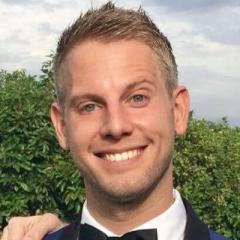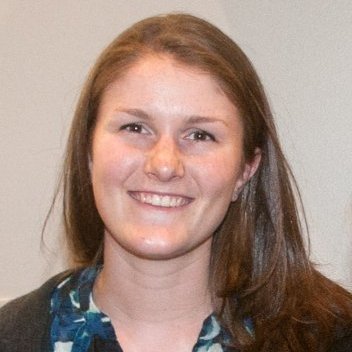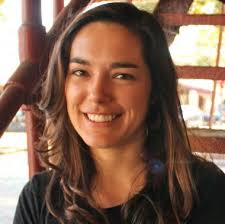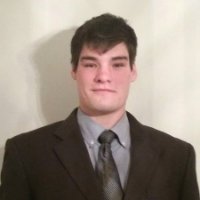 Mira Yang, an 11th grade student at Union County Magnet High School in NJ, USA and OpenMRS community member has won the 2016 Google Code-In Grand Prize! Miss Yang is a volunteer with the American Red Cross, the American Cancer Society, and a local hospital for children with special needs, who wants to use her computer science skills to assist diagnosing and treating patients in the field of medicine...
Mira Yang, an 11th grade student at Union County Magnet High School in NJ, USA and OpenMRS community member has won the 2016 Google Code-In Grand Prize! Miss Yang is a volunteer with the American Red Cross, the American Cancer Society, and a local hospital for children with special needs, who wants to use her computer science skills to assist diagnosing and treating patients in the field of medicine...
Latest News
Alangi Derick: Wikimedia’s First African Contributor to Google Summer of Code
 Alangi Derick comes from Buea, Cameroon. He joined the Wikimedia movement to develop his skills in coding, and was quickly hooked by the movement’s values and its community culture, eventually becoming a staunch advocate for it in his university. As a computer science student at the time, he joined the movement a year and a half ago, and his work booked him a place at the 2016 Google Summer of Code as one of the Wikimedia Foundation’s students. Derick passed the program, helped mentor teenage participants in Google Code-in for two consecutive years, and has helped fix bugs in the MediaWiki software...
Alangi Derick comes from Buea, Cameroon. He joined the Wikimedia movement to develop his skills in coding, and was quickly hooked by the movement’s values and its community culture, eventually becoming a staunch advocate for it in his university. As a computer science student at the time, he joined the movement a year and a half ago, and his work booked him a place at the 2016 Google Summer of Code as one of the Wikimedia Foundation’s students. Derick passed the program, helped mentor teenage participants in Google Code-in for two consecutive years, and has helped fix bugs in the MediaWiki software...
- Login to post comments
HHS IDEA Lab to Host Innovation Day on May 15
 Join us for HHS Innovation Day on May 15th at the Hubert H. Humphrey Building in Washington, D.C., where you’ll experience first-hand how new approaches and creative thinking can advance our work in government. You’ll hear from stellar employees at HHS who are using entrepreneurial methods like design thinking and lean startup to improve how their office or agency delivers on the HHS mission. The day will also feature a panel on deploying creative thinking to improve work in government, and innovative speakers from government and the private sector.
Join us for HHS Innovation Day on May 15th at the Hubert H. Humphrey Building in Washington, D.C., where you’ll experience first-hand how new approaches and creative thinking can advance our work in government. You’ll hear from stellar employees at HHS who are using entrepreneurial methods like design thinking and lean startup to improve how their office or agency delivers on the HHS mission. The day will also feature a panel on deploying creative thinking to improve work in government, and innovative speakers from government and the private sector.
- Login to post comments
Losing the Doctor Lottery
 Donna Jackson Nakazawa's insightful Health Affairs article "How to Win the Doctor Lottery" is, in turn, sad, frightening, wise, and hopeful. She recounts some of her personal travails in finding the right doctors, the ones who will truly listen and become "a partner on my path to healing," and offers several suggestions about what has to happen for us to have more chance to "win." The real question, though, is not how to win the doctor lottery we find ourselves in, but why we're playing it at all. Getting the right doctor is hard. Consider the following: It's easy enough to find out where a physician went to medical school and did their residency. It's not as easy to know what the best medical schools or best teaching hospitals are, other than by reputations (that may or may not be deserved)...
Donna Jackson Nakazawa's insightful Health Affairs article "How to Win the Doctor Lottery" is, in turn, sad, frightening, wise, and hopeful. She recounts some of her personal travails in finding the right doctors, the ones who will truly listen and become "a partner on my path to healing," and offers several suggestions about what has to happen for us to have more chance to "win." The real question, though, is not how to win the doctor lottery we find ourselves in, but why we're playing it at all. Getting the right doctor is hard. Consider the following: It's easy enough to find out where a physician went to medical school and did their residency. It's not as easy to know what the best medical schools or best teaching hospitals are, other than by reputations (that may or may not be deserved)...
- Login to post comments
Open Source Product Development Most Effective When Social
 Benetech started out in the 90s without even understanding the meaning of the term open source. They just "needed an easy way to interface with different voice synthesizers" to develop readers for people who are blind and "shared the code to be helpful." Sound familiar? Opensource.com started covering stories like in 2010 and they recur more often than you might think. Stories of people sharing the code to help others—but sharing code to get help developing better code. When code is open, a community has the opportunity to form around it...
Benetech started out in the 90s without even understanding the meaning of the term open source. They just "needed an easy way to interface with different voice synthesizers" to develop readers for people who are blind and "shared the code to be helpful." Sound familiar? Opensource.com started covering stories like in 2010 and they recur more often than you might think. Stories of people sharing the code to help others—but sharing code to get help developing better code. When code is open, a community has the opportunity to form around it...
- Login to post comments
How the Open Knowledge Lab is Using Open Source Smog Sensors to Improve Air Quality in Germany
 Stuttgart, Germany has, like many other cities, a smog problem—even if it may be less severe than in other cities. The European Union has defined a threshold of on average 50 micrograms of dust particles per cubic meter in a 24-hour window of air to be allowed for a maximum of 35 days a year. For the last few years, actual values have been much higher for more than 35 days. There are governmental stations that measure the air pollution, but they can’t be everywhere for obvious reasons. The Open Knowledge Lab in Stuttgart, Germany has begun to develop their own IoT sensors that measure air quality every minute and report the data to a central server. It is then possible to display the smog levels on a map. See the map we're using...
Stuttgart, Germany has, like many other cities, a smog problem—even if it may be less severe than in other cities. The European Union has defined a threshold of on average 50 micrograms of dust particles per cubic meter in a 24-hour window of air to be allowed for a maximum of 35 days a year. For the last few years, actual values have been much higher for more than 35 days. There are governmental stations that measure the air pollution, but they can’t be everywhere for obvious reasons. The Open Knowledge Lab in Stuttgart, Germany has begun to develop their own IoT sensors that measure air quality every minute and report the data to a central server. It is then possible to display the smog levels on a map. See the map we're using...
- Login to post comments
OpenMRS Google Code-In Student Mira Yang Wins Grand Prize
- Login to post comments
Global Coalition Pushes for Unrestricted Sharing of Scholarly Citation Data
 This week a coalition of scholarly publishers, researchers, and nonprofit organizations launched the Initiative for Open Citations (I4OC), a project to promote the unrestricted open access to scholarly citation data. From the website: "Citations are the links that knit together our scientific and cultural knowledge. They are primary data that provide both provenance and an explanation for how we know facts. They allow us to attribute and credit scientific contributions, and they enable the evaluation of research and its impacts. In sum, citations are the most important vehicle for the discovery, dissemination, and evaluation of all scholarly knowledge"...
This week a coalition of scholarly publishers, researchers, and nonprofit organizations launched the Initiative for Open Citations (I4OC), a project to promote the unrestricted open access to scholarly citation data. From the website: "Citations are the links that knit together our scientific and cultural knowledge. They are primary data that provide both provenance and an explanation for how we know facts. They allow us to attribute and credit scientific contributions, and they enable the evaluation of research and its impacts. In sum, citations are the most important vehicle for the discovery, dissemination, and evaluation of all scholarly knowledge"...
- Login to post comments
Computational Thinking in Healthcare
 OK, you use your smartphone all the time: you use the latest and greatest apps, you can text or tweet with the best of them, you have the knack for selfies, and so on. You probably also have a computer, tablet, and a gaming system, each of which you are also very proficient with. No question: you are a whiz with electronic devices. But, if you're like most of us, you don't really know how or why they work. Maybe that's OK. Most of us don't know how our cars work either, couldn't explain how heavier-than-air flight is possible, have no idea what the periodic table means to our daily lives, and would be in trouble if our lives depending on us making, say, bricks or glass...
OK, you use your smartphone all the time: you use the latest and greatest apps, you can text or tweet with the best of them, you have the knack for selfies, and so on. You probably also have a computer, tablet, and a gaming system, each of which you are also very proficient with. No question: you are a whiz with electronic devices. But, if you're like most of us, you don't really know how or why they work. Maybe that's OK. Most of us don't know how our cars work either, couldn't explain how heavier-than-air flight is possible, have no idea what the periodic table means to our daily lives, and would be in trouble if our lives depending on us making, say, bricks or glass...
- Login to post comments
Halamka's Cautionary Tale for Healthcare
 During my CIO career, I’ve worked on a few Harvard Business School case studies and I’ve had the “joy” of presenting my failures to Harvard Business school students for over a decade. I enjoy telling stories and inevitably the cases I teach are about turning lemons into lemonade. In this post, I’d like to tell a story about a recent experience with Marvin Windows and lessons learned that apply to healthcare...
During my CIO career, I’ve worked on a few Harvard Business School case studies and I’ve had the “joy” of presenting my failures to Harvard Business school students for over a decade. I enjoy telling stories and inevitably the cases I teach are about turning lemons into lemonade. In this post, I’d like to tell a story about a recent experience with Marvin Windows and lessons learned that apply to healthcare...
- Login to post comments
Bringing Creative Science to Healthcare, An interview with DesignMap Partner Audrey Crane
 Audrey Crane is one of those people who teeter softly on the balance point between the right brain and left brain. Not exclusively a creative, not exclusively a technicalist. One of those people with a healthy splash of both, which play nicely together to facilitate good design work. She’s brought this balance along with her to DesignMap, where she’s now been Partner since the summer of 2010. DesignMap provides high pedigree UX services to major clients, which have recently included Docker, EBay, HP, Aetna, Salesforce, Bloomberg, and others. For Health Technology Forum’s Common Good Innovation Conference at Stanford this May, DesignMap is sponsoring a workshop called the Healthy Aging Challenge...
Audrey Crane is one of those people who teeter softly on the balance point between the right brain and left brain. Not exclusively a creative, not exclusively a technicalist. One of those people with a healthy splash of both, which play nicely together to facilitate good design work. She’s brought this balance along with her to DesignMap, where she’s now been Partner since the summer of 2010. DesignMap provides high pedigree UX services to major clients, which have recently included Docker, EBay, HP, Aetna, Salesforce, Bloomberg, and others. For Health Technology Forum’s Common Good Innovation Conference at Stanford this May, DesignMap is sponsoring a workshop called the Healthy Aging Challenge...
- Login to post comments